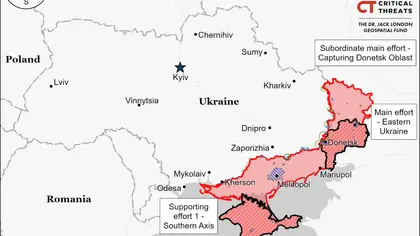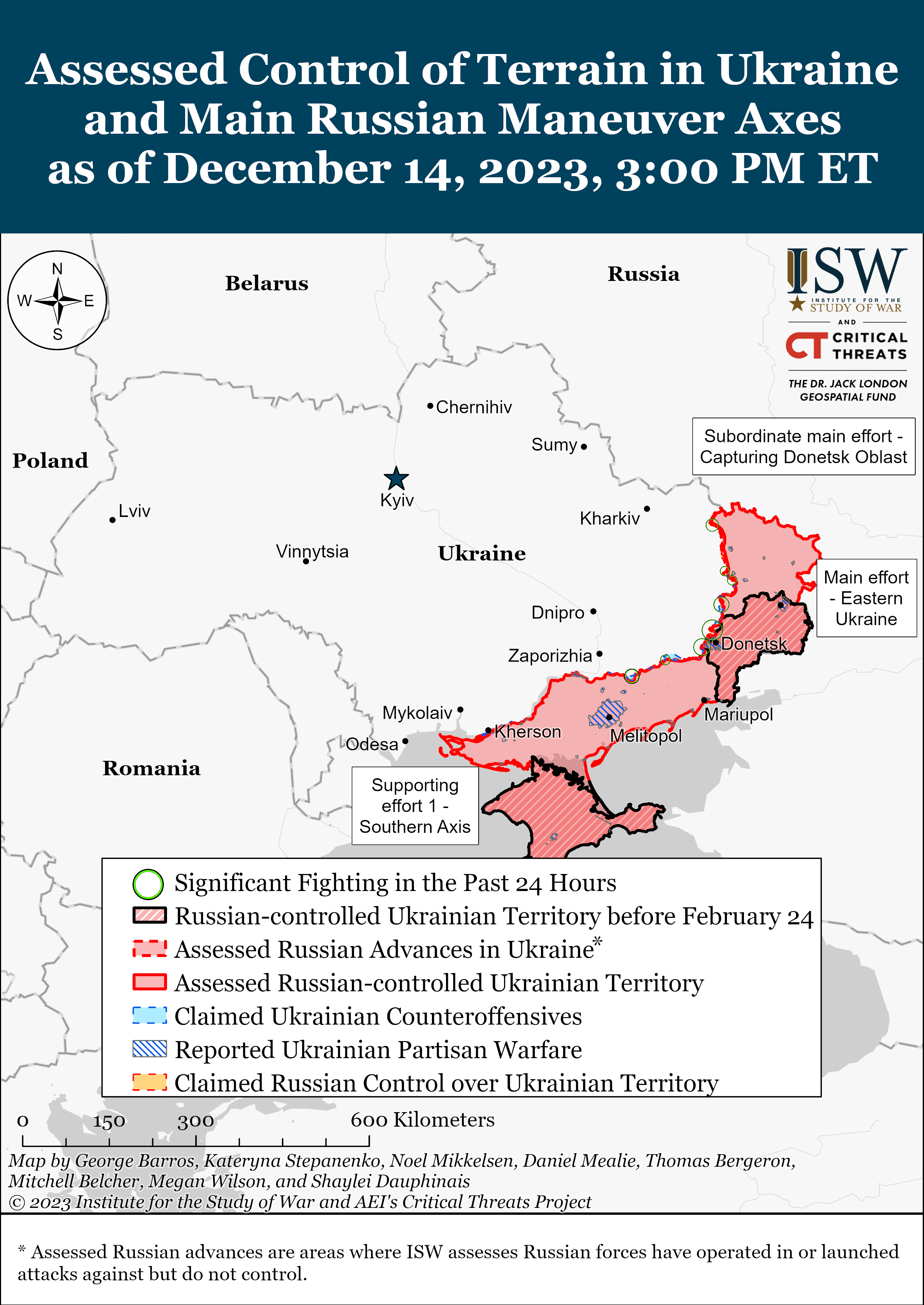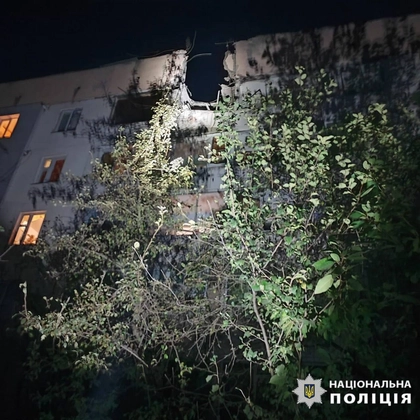Key Takeaways from the ISW:
- Russian President Vladimir Putin displayed notable confidence in publicly discussing Russia’s war on Ukraine during a joint event combining his annual press conference and “Direct Line” forum on December 14 but did not clearly define his envisioned end state for the full-scale invasion he launched on February 24, 2022.
- Putin reiterated his maximalist objectives for the Russian war in Ukraine, which are likely purposefully opaque to be inclusive of additional goals that Putin may seek to pursue now or later.
- These maximalist objectives also do not exclude Russia’s annexation of occupied Ukrainian territories or additional territorial conquests.
- Putin attempted to rhetorically contextualize Russia's continued maximalist objectives in Ukraine within the wider conception of Russian "sovereignty," an ideological line that has been consistent in the Kremlin's framing of Russian national security and foreign policy since before the full-scale invasion of Ukraine.
- Putin claimed that the Russian force grouping in Ukraine is far larger than even Russian officials have characterized, likely in an attempt to both address persistent Russian concerns about a new mobilization wave and to demoralize the West and Ukraine.
- The difference in the reported numbers of Russian personnel involved in the war is likely due to different categorizations of Russian military personnel and does not reflect a significant increase in Russian personnel on the frontline, which Ukrainian forces have consistently been repelling.
- Putin notably addressed the tactical and operational situation in east (left) bank Kherson Oblast but refrained from discussing active Russian offensive operations in eastern Ukraine.
- Putin’s public discussions about issues at the front and about the Russian war effort in general may redirect public anger about problems in the war toward the Russian Ministry of Defense (MoD).
- Putin also attempted to convince the Russian public that the Russian economy is resilient in the face of international sanctions and the fallout of the war in Ukraine.
- Putin continued to express an increasingly anti-Israel position on the Israel-Hamas war, likely signaling a continuing decline in Russian-Israeli relations.
- Putin attempted to downplay deteriorating Armenian-Russian relations and extricate Russian peacekeeping forces from any responsibility for Armenia’s loss of Nagorno-Karabakh as Armenia appears to be effectively abstaining from participating in the Russian-led Collective Security Treaty Organization (CSTO).
- Russian forces continued offensive operations along the Kupyansk-Svatove-Kreminna line, near Bakhmut, near Avdiivka, west and southwest of Donetsk City, in the Donetsk-Zaporizhia Oblast border area, and in western Zaporizhia Oblast and advanced in some areas.
Authors: Karolina Hird, Grace Mappes, Angelica Evans, Christina Harward, and Frederick W. Kagan.
See the original here.
JOIN US ON TELEGRAM
Follow our coverage of the war on the @Kyivpost_official.
To suggest a correction or clarification, write to us here
You can also highlight the text and press Ctrl + Enter
You can also highlight the text and press Ctrl + Enter








